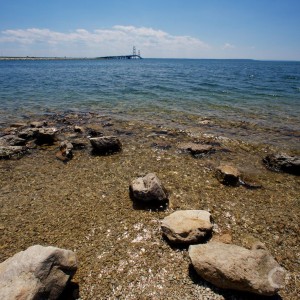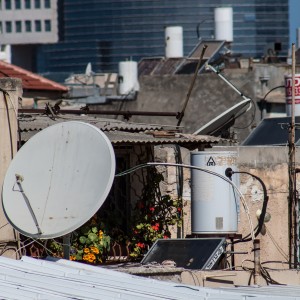The Stream, April 14: Japan May Dump Fukushima Water into Ocean
The Global Rundown
The high cost of removing the last remaining traces of radioactive material from contaminated water at the Fukushima nuclear plant in Japan could force operators to dump it directly into the Pacific Ocean. Water scarcity will likely constrain India’s plan to drastically increase power production. More than half of U.S. states received a “D” or “F” grade for their water quality monitoring. The U.S. House of Representatives moved forward on a funding measure for energy and water projects. Efforts to repair water systems and conserve water use in Ireland are bearing fruit, the national utility says.
“Tritium is so weak in its radioactivity it won’t penetrate plastic wrapping,” Shunichi Tanaka, chairman of the Nuclear Regulation Authority in Japan, describing the radioactive material that is most difficult to remove from contaminated water at the damaged Fukushima nuclear power site. The plant’s operators may be forced to release the growing stockpile of water into the Pacific Ocean, tritium and all. (Associated Press)
By The Numbers
$37.4 billion Amount approved by a U.S. House of Representatives panel to fund the Department of Energy and federal water programs. The Hill
34 million liters/day Amount of water saved due to repairs made by Irish Water, Ireland’s national water utility, according to a utility conservation specialist. The Irish Times
Science, Studies, And Reports
Water quality monitoring in streams and rivers across the United States is “haphazard and limited,” according to a report released by the Izaak Walton League of America, an environmental organization based in Maryland. The report found that states are effectively monitoring water quality in just 2 percent of rivers and streams, and it gave more than half of all states a “D” or “F” grade for their monitoring programs. Izaak Walton League of America
On The Radar
India’s push to build more thermal power plants, which need water for cooling, will likely run into water scarcity constraints. Last month, the country’s largest power producer was forced to shut down a power plant in eastern India due to dropping water levels. Bloomberg
A news correspondent for Circle of Blue based out of Hawaii. She writes The Stream, Circle of Blue’s daily digest of international water news trends. Her interests include food security, ecology and the Great Lakes.
Contact Codi Kozacek






Leave a Reply
Want to join the discussion?Feel free to contribute!